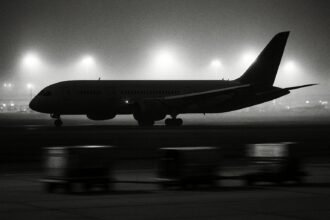Russian President Vladimir Putin’s comments on late opposition leader Alexei Navalny stir controversy as he secures a fifth term, amid allegations of electoral unfairness and international condemnation.
Russian President Vladimir Putin has stirred significant controversy following his recent comments regarding the late opposition leader Alexei Navalny. In a statement made after securing a fifth term in office, Putin disclosed that prior to Navalny’s death, there had been negotiations for a prisoner swap that would have potentially freed the opposition figure. The condition for Navalny’s release, according to Putin, was that once swapped, he was not to return to Russia. Describing Navalny’s death as a “sad event,” Putin’s admission has led to allegations of his complicity in the incident by Navalny’s allies. Speculation surrounds the identity of the individual in the West for whom Navalny was proposed to be exchanged, with some suggesting it was a Russian FSB officer imprisoned in Germany.
Putin’s remarks come in the wake of his significant electoral victory, where he claimed over 87% of the votes, extending his presidency until 2036. Despite facing no credible opposition due to stringent controls over the electoral process, the election has drawn criticism from both domestic and international observers for its lack of fairness. In his victory speech, Putin thanked Russian voters for their trust and spoke on the need for unity and progress in Russia, while dismissing criticisms of the electoral process by championing Russia’s implementation of online voting as a sign of advanced democracy.
The election has not only cemented Putin’s dominance in Russian politics but also raised concerns about the state of democracy within the country. The controlled political environment, which effectively silences opposition through various means, has prompted questions regarding political diversity and opposition within Russia. Navalny’s supporters, despite the poignant absence of their leader, demonstrated symbolic acts of dissent in Moscow, St. Petersburg, and other regions, urging voters to use the polls to honour Navalny’s memory.
The international community, including the UK Foreign Secretary, has condemned the election, citing a lack of freedom and fairness. Reports from independent watchdogs such as Golos highlighted obstacles to observing the vote and allegations of voting irregularities. President Putin’s victory, while predictable, underscores the Kremlin’s tight grip on Russia’s political landscape and prompts further scrutiny of Russia’s future direction and its impact on global dynamics.













